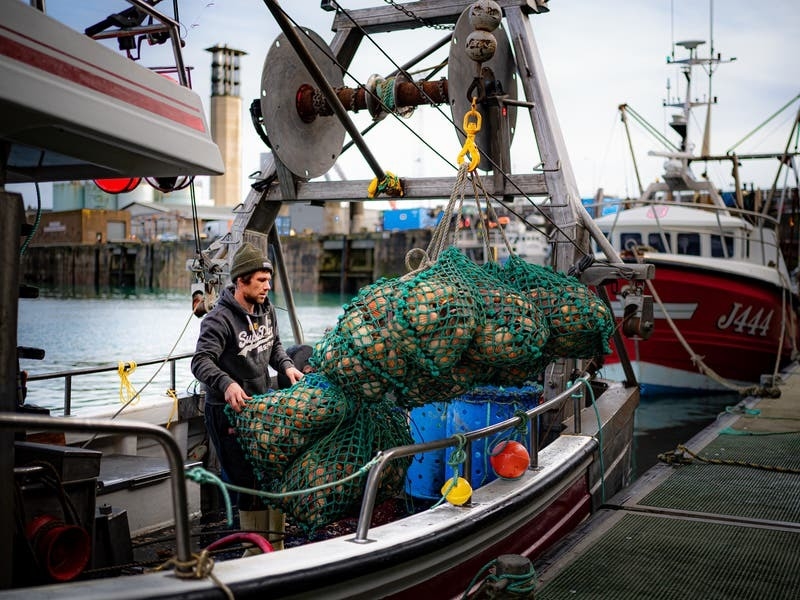In a move that reflects recent talks between the States and the dairy industry – which resulted in the States agreeing to contribute between £150,000 and £200,000 to help the industry cover the increased costs of feeding cattle over the winter – Charlie Gallichan, of Woodside Farms, said growers were in discussions with the States.
The challenge, however, he said was in quantifying the numbers when it came to how much extra the weather had cost them.
‘There are a few of us with similar crops who have been badly affected and we are in the process of talking to government,’ he said. ‘We have had the hugely significant cost of irrigation.We always expect to irrigate something but it has been very extreme.
‘It is difficult to quantify so that is what we are trying to do at the moment.’
He estimated that some crop yields were down 20 to 30 per cent on normal levels as a direct result of the weather.
Meanwhile, Jersey Farmers Union president Peter Le Maistre said it was also possible that there could be some individual livestock farmers, who may need similar support.
And arable farmer Christine Hellio said that while they did not currently need financial help from the States, they did urgently require a solution to the job crisis crippling the sector.
The Jersey Milk Marketing Board, which owns Jersey Dairy, estimates that an extra £500,000 will be required this winter to import cattle feed to maintain milk-production levels in line with local demand, and meet export contracts to the UK and Far East. Sub-zero temperatures and heavy rainfall in the first few months of the year, followed by record-breaking summer heatwaves and droughts, reduced crop yields, delayed growing cycles and left pasture land brown and parched, stopping grass from growing and forcing farmers to begin using their winter food stocks early.
Economic Development Minister Lyndon Farnham said his ‘door is always open’ when it comes to supporting the Island’s arable farmers, who are also facing increased costs from months of having to irrigate crops and loss of income owing to reduced crop yields and failures when fields turned to dust bowls.
Mr Le Maistre, who grows conventionally and organically for the local market and for export to the UK, said while it had been a difficult season for growers, they were not suffering on the same scale as the dairy industry.
However, he added that he been approached by others with concerns.
‘I think there may be one or two others in the animal sector, people with sheep for example, who say their story is very similar to cattle,’ he said. ‘I think if they can make a similar case to the dairy industry, from listening to the [Economic Development] Minister, I would expect the government to treat them in a similar fashion.’
Meanwhile, Mrs Hellio, who runs Manor Farm in St Ouen with her husband Didier, welcomed the support for her dairy colleagues. However, she said that the lack of workers to support the sector was a major concern for growers.
‘I don’t think that help should be given at the moment [to arable farmers]. But we don’t really know who is coming when it comes to staff. Nobody has made that decision. That is what we need the States to decide, and we need that quickly.’






